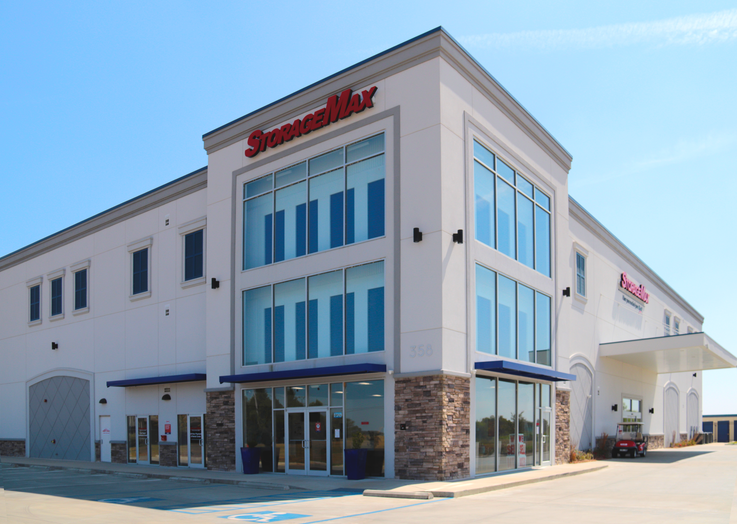Lawsuit Tsunami
Thousands Of ADA Compliance Claims Flood Phoenix
California and some other states have dealt with multiple lawsuit filings related to the Americans with Disabilities Act (ADA) over non-compliance issues, and now Arizona is ground zero for those same kinds of filings.
The difference between the ones filed in most other states and those in Arizona are the number an organization backing the lawsuits have filed and promise to file nationwide.
According to the Arizona attorney general’s office, more than 1,700 lawsuits have been filed this year in Arizona over supposed violations of the ADA. The number of businesses that have been affected may actually be higher. Many business owners claim that AID (an acronym for Advocates for Individuals with Disabilities), the entity filing many of these lawsuits, first contacts a business it finds to be in violation and demands “out of court settlements”.
Although at least one self-storage facility was rumored to have settled with AID, Mini-Storage Messenger was unable to verify that rumor. Industry experts warn that with AID attorneys threatening to file 100,000 lawsuits nationwide, it is only a matter of time before it hits the self-storage sector.
The ADA Explained
The ADA was enacted by Congress in 1990. The law was the first major civil rights act meant to address the needs of people with limited mobility issues, giving them access to all of the facilities that able-bodied people can access. Many recognize the changes made to parking lots, which must maintain a certain number of wheelchair accessible spaces, public restrooms with larger stalls and handrails, and newer buildings with ramp and elevator requirements.
Title III of the law required all new public facilities and those undertaking major renovations to be in compliance. Things changed in the late 2000s when the Justice Department put out a public comment for a new interpretation for the ADA. For self-storage, ADA requirements not only cover the office, but the entire facility.
AID And Its Mission
The AID organization sees itself as a champion for the disabled; its website shows the organization giving out scooters, air conditioning units, and other things people with disabilities need or may not be able to afford on their own.
Apparently, a large portion of its funds come from the threat of lawsuits against business owners for non-compliance and out of court settlement demands. Carol Mixon-Krendl, president of Skilcheck Services Inc. in Tucson, Ariz., says she managed more than 36 properties in California when these lawsuits were being filed by other organizations there.
Mixon-Krendl described a client who was approached by lawyers who wanted an out of court settlement on an ADA violation at one of his properties. “He felt terrible about the violations, but paid it and was sued anyway,” she says. “He was a former congressman and they wanted to make an example of him.”
Mixon-Krendl states that the filings in California became so tedious that businesses were being cited for insignificant violations such as a mirror being two inches too high in a public restroom.
So far, the cases in Arizona have mainly focused on parking lot violations. Those violations include whether there are the required number of parking spots for the disabled, the mandated space between the spots, and proper signage at the required height.
Scott Zucker, partner with Weissmann Zucker Euster Morochnik, P.C. in Atlanta, Ga., says many of the lawsuits were following the patterns found in other states. “Many of these lawsuits were filed based simply on the fact that the signage was placed a couple of inches too low,” he notes.
ABC15 in Phoenix has done extensive reporting on AID. According to reports, AID was formed in January 2016. At first, the organization was filing lawsuits on behalf of a 74-year-old man who had undergone hip surgery. Though he admitted that he had not been to all the businesses that he put his name to on lawsuits, AID attorneys assert that isn’t a requirement. In May, the man quit putting his name to lawsuits and joined the group as a director.
While the organization vows it is about bringing businesses into compliance with the 26-year-old law and not about the money it is making on out of court settlements and lawsuits, the organization was at first filing on businesses without notice.
They are now, according to multiple media sources, dropping notices by businesses informing them that people will be in their area doing “inspections” before filing. AID claims on its website it has sent more than 40,000 such notices to businesses.
Martin Lorch, president of BPI Capital in Phoenix, whose company manages 17 self-storage facilities in the area, mentions that someone has dropped such leaflets by two of his facilities in recent months. Lorch, who works very hard to ensure his facilities are in compliance, adds that no further contact was made with his facilities either to demand money or file suit.
Action On Behalf Of Businesses
No one can deny that the ADA helps disabled people have access to facilities and services that abled-body people sometimes take for granted. However, what Zucker calls “serial lawsuits” may do more harm for the disabled community, according to long-time disability advocates.
Phoenix organizations, such as Ability 360, the Arizona Statewide Independent Council and Marc Community Resources, Inc., all have publicly condemned the serial filings. Larry Wanger, director of the Arizona Statewide Independent Council even told ABC15 the lawsuits were an “abuse of the system”.
However, Wanger also stated to media outlets that some businesses and government officials do have a lax attitude toward the law. “This law has been around for 26 years,” Wanger told The Arizona Republic. “We realize there are a lot of details and requirements business owners have to know, but you assume those responsibilities when you open a business.”
Another organization, the Arizona Disability Coalition, has launched a social media campaign asking people who find barriers at Arizona businesses to take a photo and post it to social media with the hashtag #noaccessAZ.
By August 2016, Arizona’s Attorney General Mark Brnovich became involved, filing a motion to have 1,000 of the non-compliance cases filed during 2016 dismissed. That number was expanded to 1,700 in December.
“Abusive litigation practices harm our community,” says Brnovich. “These shakedowns strain our collective resources and damage our faith in well-meaning laws and public institutions.” Chambers of commerce, including the Mesa Chamber of Commerce, support the a’s filing.
AID responded by doubling down, releasing a press release on its website in December titled, “Members of AID Take Brnovich to Court for Turning a Blind Eye to Over 9,000 Documented ADA Violations.”
The press release states that AID has filed a writ of mandamus against the Arizona attorney general for failing to enforce the AzDA as required by Arizona state law. The release states, “A writ of mandamus is filed to compel a party to execute or complete a duty they are legally bound to complete. In this case, enforcement of the Arizona with Disabilities Act by the attorney general.”
The lengthy press release, which can be found on its website at www.aid.org, continues to state that the organization’s mission is not the money (it claims it operates in the red) it is collecting from businesses, but to advocate for people with disabilities and to force compliance to the 26-year-old law. It continues,
“Now that this writ of mandamus has been filed, the attorney general must respond and explain to the court why they have not had any communication with complaining parties regarding 9,000 AZDA complaints in compliance with AZDA statute and why they are not enforcing the AZDA on a broader scale through periodic inspections.”
Mixon-Krendl notes that the California legislature finally brought some relief to business owners over the state’s serial ADA filings by changing the law so that people filing the lawsuit had to be actual customers of the business they were filing against.
The Arizona legislature tried to pass a law this year stating that a lawsuit could not be filed until the business had been given written notice of the violation as well as 60 days to come into compliance.
The measure failed after disability rights advocates opposed the law. However, it is expected that a similar law will be introduced this next session. There may be more than one proposed law, giving the heightened awareness of the number of serial lawsuits that are being filed.
However, even if such laws were to pass, they would only address the law as it applies in Arizona, not the federal ADA.
What Storage Business Owners Should Do
“The ADA requires that small businesses remove architectural barriers in existing facilities when it is readily achievable to do so,” says Zucker. “Readily achievable means easily accomplishable without much difficulty or expense.”
The 2010 Standards of Accessible Designs lays out the new design requirements, which could mean an owner/operator must install an entrance ramp, widen doorways, or just reposition shelves and other furniture. According to Zucker certain dates of the construction process determine which standards must be used:
- If the last or final building permit application for a new construction or alterations project is certified before March 15, 2012, businesses may comply with either the 1991 or 2010 standards.
- If physical construction began after March 15, 2012, the business must use the 2010 standards.
“Although self-storage operators are currently subject to all the ADA building access regulations applicable to structures generally, the 2010 standards included space accessibility ‘scoping requirements’ that apply specifically to self-storage buildings,” says Zucker.
For facilities with less than 200 units, five percent of the units must be accessible. For facilities with more than 200 units, there must be 10 units, plus two percent of the total units. Additionally, these units must be dispersed among “classes” of units, which has generally been interpreted to mean dispersed among sizes and types (climate-controlled and non-climate-controlled) of units offered.
“If there are more classes than the number of accessible units that are required; operators do not need to have additional accessible units just to have one in each class,” says Zucker. “There also appears to be no need to disperse the accessible units among buildings in a multi-building facility.” Operators also do not need to hold units back from rental solely for a person with limited mobility if the space is needed.
“I would say that 95 percent of older storage facilities in the United States are not in compliance with the law,” states Mixon-Krendl. “When litigation usually starts, it’s on either coast and then works its way in.”
Her advice: Do what you have to do to become compliant.
Zucker agrees. “These lawsuits should be a real wake-up call to operators,” Zucker says. Non-compliance can cost a facility up to $4,000 per violation.
Making Your Facility Accessible
When California made the changes in its laws to help business owners, it also changed the law to require a Certified Access Inspector to inspect properties to ensure compliance. Arizona and many other states do not yet have such requirements, but self-storage operators and other businesses can hire architects to help bring their facilities into compliance.
According to Zucker, inspection can cost between $1,000 to $4,000 depending on the size of your facility and location. “Those costs to come into compliance can range from simply putting up parking lot signage to maybe having to install a ramp,” he says.
Lorch adds that making sure the parking lot is in compliance is one of the easiest ADA issues to fix. “When we seal the parking lot of any of our facilities, we make sure it is in compliance at that time,” says Lorch. “Why not do it and wait for an eventual lawsuit?”
Making the parking lot ADA compliant typically costs less than $200, which just requires properly measuring the spaces, stenciling, and placing the sign (at the right height, of course). Lorch notes that some older facilities do not require parking compliance due to the fact they have only two spaces. However, applying for a waiver of any ADA requirement is still necessary and is a long and arduous process. Business owners applying for such waivers must provide proof that the issue cannot be resolved.
Common areas in and around the office that need to be addressed in many older facilities include making the restrooms compatible with plenty of space to maneuver. As well, offices must be retrofitted with ramps for accessibility. It is important to note: If you have to build a ramp, ensure that it meets the sloping requirements. Having an architect who is knowledgeable in ADA requirements inspect your property and help plan the necessary changes in advance can alleviate any issues later.
This also includes scoping requirements, which sometimes presents a challenge to some facilities, especially those that have outdoor access. Single-story facilities are built at a slope to keep water, dust, and other debris out of the units. ADA requires that the slope cannot exceed one inch per foot.
It’s better if the city inspectors allow all the ADA accessible units to be located among the climate-controlled units of a facility with both outdoor load and climate-controlled units. However, it is up to each jurisdiction as to how they interpret the law. Mako Steel has designed a weather protection edge that can be placed around the buildings to keep water out of the buildings.
Another requirement is that the door has to have less than five pounds of force, which, in most cases, just means adding a strap or bar to a roll-up door. Janus International Group sells an ADA kit, which includes a placard, a lanyard for the latch, a pull (which must meet height requirements), and a rope for the door handle.
Moreover, in the event that your facility is targeted for a legal suit, it will look better if it’s evident that your facility is at least making a plan and trying to comply. “I suggest to have an ADA audit done by either an architect or a Certified Access Inspector in California,” Zucker says. “To ignore the issue is subjecting your property to risk of a lawsuit.”
Kerri Fivecoat-Campbell is a freelance journalist based in the Ozark Mountains. She is a regular contributor to MiniCo’s publications. Her business articles have also appeared in Entrepreneur, Aol.com, MSN.com, and The Kansas City Star.
More Content
Popular Posts
Recent Posts
When Germantown High School in Gluckstadt,...
It’s comforting to know that no matter how...
A very wise self-storage expert once said...
Senate Bill 709 (SB709) has many in the...
In January, self-storage industry veteran...
In April 1984, the first non-stop commercial...
Raise your hand if you’ve ever made plans,...
Everyone knows it: Investing in real estate...









